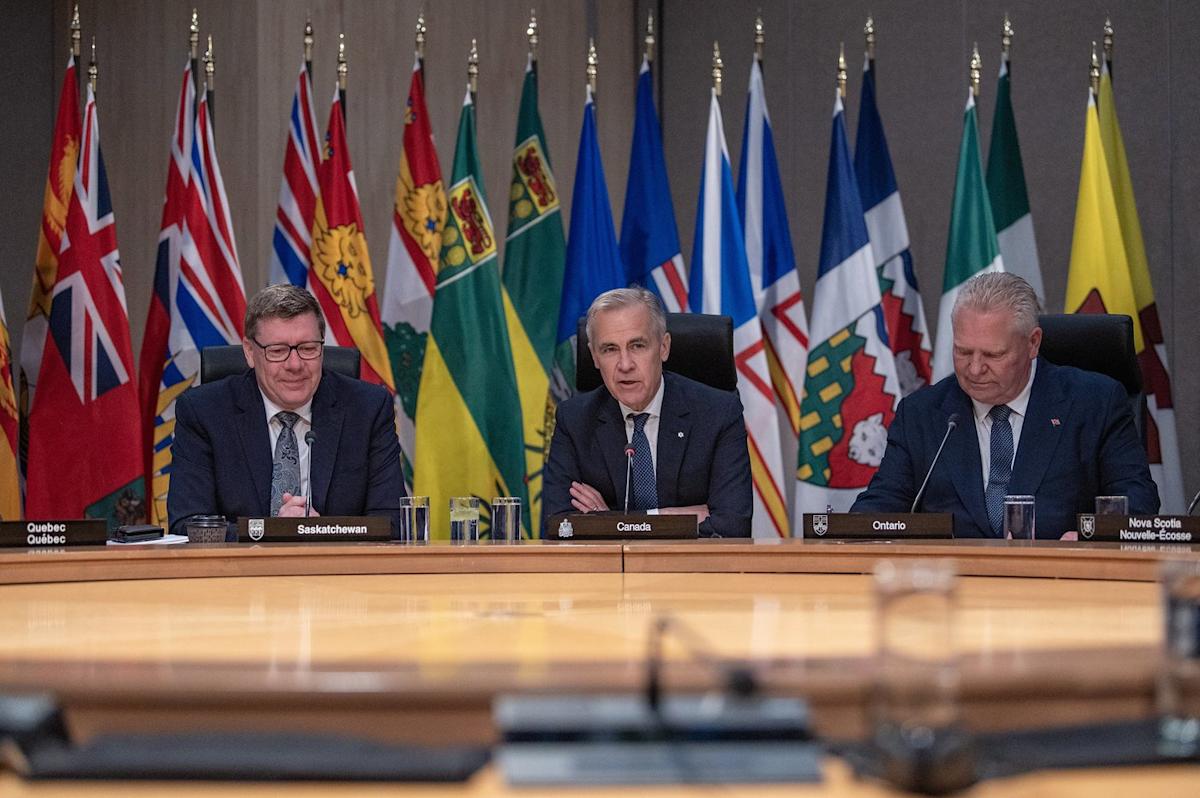Canada’s Premiers Call on PM Mark Carney to Prioritize Pipelines, Grids, and Critical Infrastructure
Canada’s provincial and territorial premiers jointly urged Prime Minister Mark Carney to make energy and transportation infrastructure a top national priority, calling for immediate support for new oil pipelines, modernized electricity grids, critical mineral mining projects, and improved port and railway systems.
In a high-stakes meeting held Monday in Ottawa, leaders from across the country presented a united front, emphasizing the urgency of upgrading and expanding Canada’s infrastructure to meet both economic and climate goals. With global energy demands evolving and domestic industries aiming to transition toward net-zero emissions, the premiers argued that Ottawa’s support is vital for maintaining Canadian competitiveness.
Pipeline Push Amid Energy Security Concerns
Several premiers, particularly from oil-rich provinces like Alberta and Saskatchewan, emphasized the need for additional oil and gas pipelines. They argue that Canada must continue to supply secure, responsibly-produced energy to global markets even as it invests in renewable alternatives.
“Pipelines are not just about energy—they’re about jobs, national security, and the prosperity of every Canadian,” said Alberta Premier Danielle Smith. “We need a federal partner who understands that reality.”
Electricity Grid Modernization and Clean Energy Goals
Premiers from Quebec, British Columbia, and Ontario highlighted the need for a resilient, interconnected electricity grid capable of handling rising demand from electrification efforts, such as electric vehicles and green industries. They called on the federal government to streamline approvals and increase funding for interprovincial grid connections.
“Without a strong grid, Canada cannot meet its climate targets or support the growing demand for clean power,” said Quebec Premier François Legault.
Mining for the Future: Critical Minerals in Focus
The call also spotlighted the urgent need to develop critical mineral resources—such as lithium, cobalt, nickel, and rare earth elements—that are essential for clean technologies like batteries and wind turbines. Leaders from the North and rural provinces stressed the importance of balancing environmental stewardship with the economic potential of resource development.
“Canada has a unique opportunity to lead in the global green economy,” said Manitoba Premier Wab Kinew. “But we need roads, rail, and regulatory certainty to unlock that opportunity.”
Ports, Railways, and the Supply Chain Backbone
Supply chain resilience also featured prominently in the discussion. The premiers stressed that Canada’s ports and railway systems—many of which are aging or at capacity—must be upgraded to handle future trade and population growth.
“Canada’s economic heartbeat runs through our railways and ports. Delays and inefficiencies hurt every industry and every household,” said British Columbia Premier David Eby.
A National Call for Federal Partnership
While energy and infrastructure fall under both provincial and federal jurisdictions, the premiers made it clear that Ottawa’s leadership and financial investment are critical. They urged Prime Minister Carney to convene a national task force and commit to fast-tracking strategic projects that support long-term national interest.
In a brief statement, Carney’s office acknowledged the premiers’ requests and stated that the government would review the proposals “with urgency and seriousness.”
As Canada balances its roles as a major energy producer and a climate leader, the outcome of these discussions could shape the country’s infrastructure landscape for decades to come.

